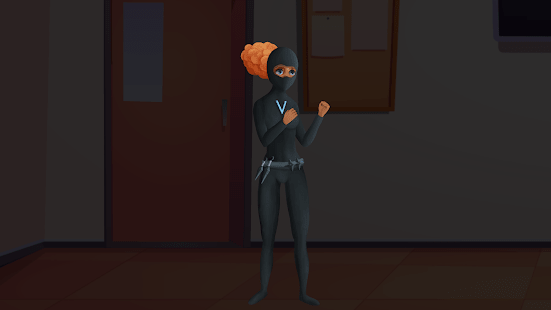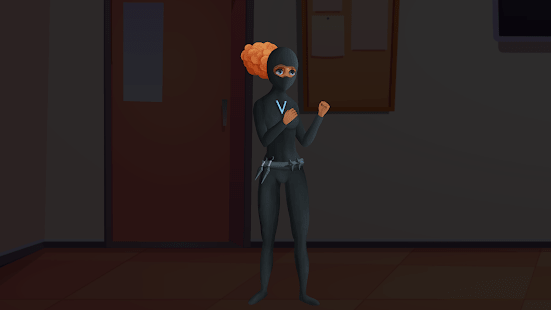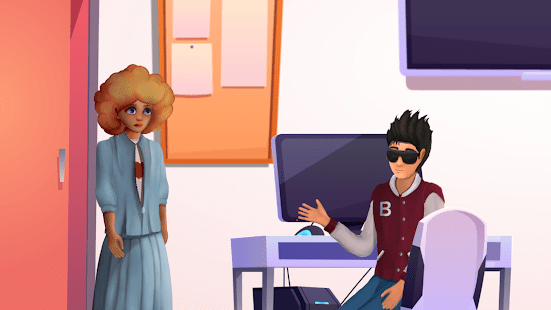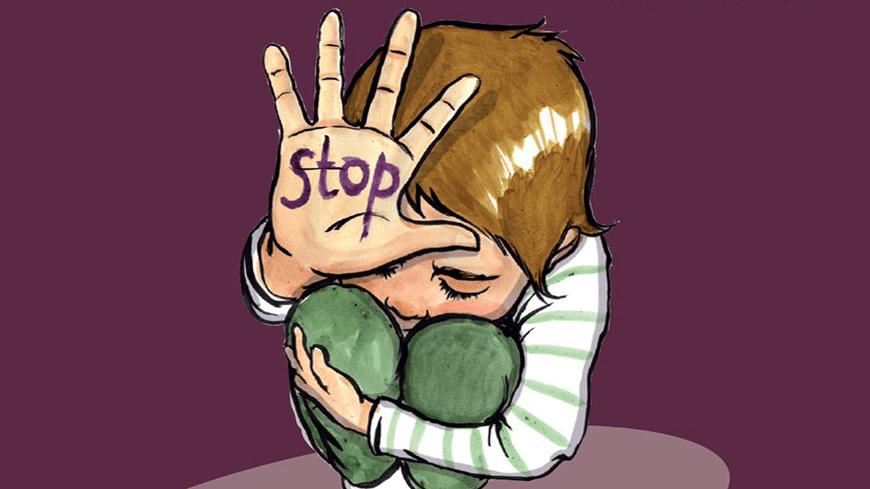There are a number of common practices that can help prevent child molestation. For example, teach the child to guard their personal space; that some parts of the body are not shown to others. It is important to teach children that certain body parts should generally only be touched by the child. These body parts are often defined as anything that hides under their bathing suit.
Build a trusting relationship and explain to your child that if anyone tries to touch him in “forbidden” places, they should say “no” and tell you about it right away. Children are more likely to tell their parents something if they know they won’t be punished for it. It is also important for children to know that their parents will believe them.
Explaining such sensitive topics in words a child understands can be difficult. Fortunately, there is now an innovative method that uses advanced technology to teach children to protect their bodies.
The Virtue Ninja® Game: Teaches Children to Protect their Body
TheVirtueNinjaGame.com aims to teach children simple principles of behavior that will help get them out of various unpleasant situations. Additionally, The Virtue Ninja® Game also teaches children how to plan, focus, and achieve their long-term goals.
The game starts with the player choosing a long-term goal, such as becoming an entrepreneur or buying a house or attending college. Then, the game begins.
As the game progresses, the player gets into various unpleasant situations involving uncomfortable touching, bullying, and violence. The game shows how children can fight their thoughts of doubt and fear, to respond correctly.
Having successfully defeated those thoughts, the child will earn gems that represent different virtues, such as confidence and mental fortitude.
How to Start
The Virtue Ninja® Game’s mission is to proactively teach children how personal space is to be respected.
1. Go to TheVirtueNinjaGame.com, Google Play Store, or App Store.
2. Purchase and download The Virtue Ninja® Game.
3. Launch The Virtue Ninja® Game on your mobile device.
4. Teach your child how to play:
-
- First choose a long-term goal: entrepreneurship, buying a house, or graduating from college.
- Choose an avatar.
- As the game progresses, the player will get into common unpleasant situations.
- To overcome the unpleasant situations, the Virtue Ninja® must defeat their thoughts which can include monsters of fear and doubt.
- Once The Virtue Ninja® has defeated all their negative thoughts / monsters, the player earns gems that represent various virtues necessary to successfully achieve their long-term goals..
5. Your child can play TheVirtueNinjaGame.com uninterrupted. It is completely ad-free!
Sexual molestation is often a taboo that is shunned. But it is sexual abuse that always has the strongest impact on the psyche of the victim, and we cannot remain silent about it. Children and adolescents are in the main risk group due to their age characteristics. They are usually physically unable to resist, easily indoctrinated, and fall under the influence because of their immaturity and lack of life experience.
Know if a Child Has Been Molested
Smptoms of child molestation can manifest itself in different ways. It is difficult to believe that such things can happen in your family and often parents don’t believe the molested child when he or she tries to talk about what happened.
Symptoms of a Molested Child
The molested child suddenly becomes quiet:
If your normally responsive and energetic child suddenly becomes shy and secretive, be on alert. A child typically who has been sexually abused often feels shame, embarrassment, and confusion about what has happened. Children have not yet learned to clearly and distinctly recognize and express their feelings, so they store and block those feelings out.
The molested child’s behavior does not correspond to his or her age, the child:
- begins to wet the bed (after the age when it is considered normal);
- shows aggression for no reason;
- does not want to part with you and cries when you leave him or her at school or at kindergarten.
Nightmares and other sleep disorders:
Molested children often have nightmares and insomnia. There is no need to panic because of a couple of nights. Nevertheless, if your child has been having nightmares for a week, cries when you leave the room before going to bed, and cannot fall asleep alone, you need to take steps to determine the causes of such disorders.
“Suspicious” play:
Sometimes sexually abused children unconsciously recreate what happened while playing with other children or with toys. In such cases, the molested child’s play assumes obvious sexual connotations, although the girl or boy will not be able to explain to you why the game has this and not a different form.
Unhealthy reactions to certain places and specific people:
The sexually abused child starts to persistently show unwillingness to be in a place to which he or she is accustomed (a yard, school, an apartment). It can also happen near a specific person who causes him or her to react by running away, attempting to hide, stupor, crying, screaming.
Consequences of Molestation
The consequences of sexual abuse can manifest differently:
1. Traumatic stress reactions:
States of fear and anxiety are among the symptoms that occur in molested children both as immediate and delayed reactions to the trauma of the sexual abuse. The latter include sleep disorders (restless sleep, insomnia), poor appetite, psychosomatic complaints, and all-consuming anxiety. The fear often has a generalized character, i.e., extends not only to the sexual abuser but is shown in a wary attitude or avoidance of parents and other adults who have authority.
2. Suspicion and mistrust:
Children who have been sexually abused find it very difficult to establish trusting relationships with adults. Many of them perceive the world as a dangerous place. They no longer expect their parents and others to support and help them. In addition, they constantly suspect that others will try to hurt them.
3. Depression and suicidal behavior:
Molested children have depressive symptoms accompanied by sadness and inability to experience pleasurable feelings. Severe depression is usually accompanied by feelings of humiliation, a state of extreme vulnerability, and a sense of intrusion into their “intimate” zone aka personal space. For survivors of physical or sexual abuse, major depression is often combined with self-destructive behaviors such as self-harm, suicidal ideations, promiscuity, and drug abuse.
4. Low self-esteem:
Sexually abused children begin to view themselves with some resentment and contempt. Their low self-esteem is eventually masked by compensatory grace and fantasies of omnipotence. Low self-esteem in victims of sexual abuse is often based on shame and guilt.
5. Loss of interest in school:
School failure due to decreased cognitive motivation, hyperactivity, specific learning difficulties is a common thing among sexual abuse victims. Sense of defect and inferiority make sexually abused children insecure about their abilities. Subsequently, they often subconsciously expect failure.





CoolBoard
Great content! Keep up the good work!
Bernard Choi
I am sure this piece of writing has touched all the internet people, its really really pleasant
piece of writing on building up new web site.